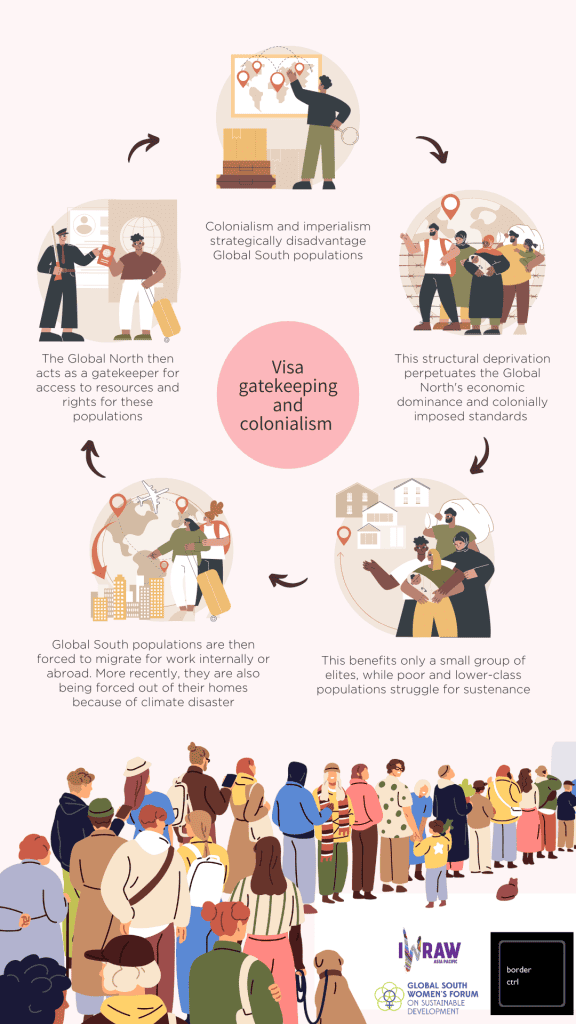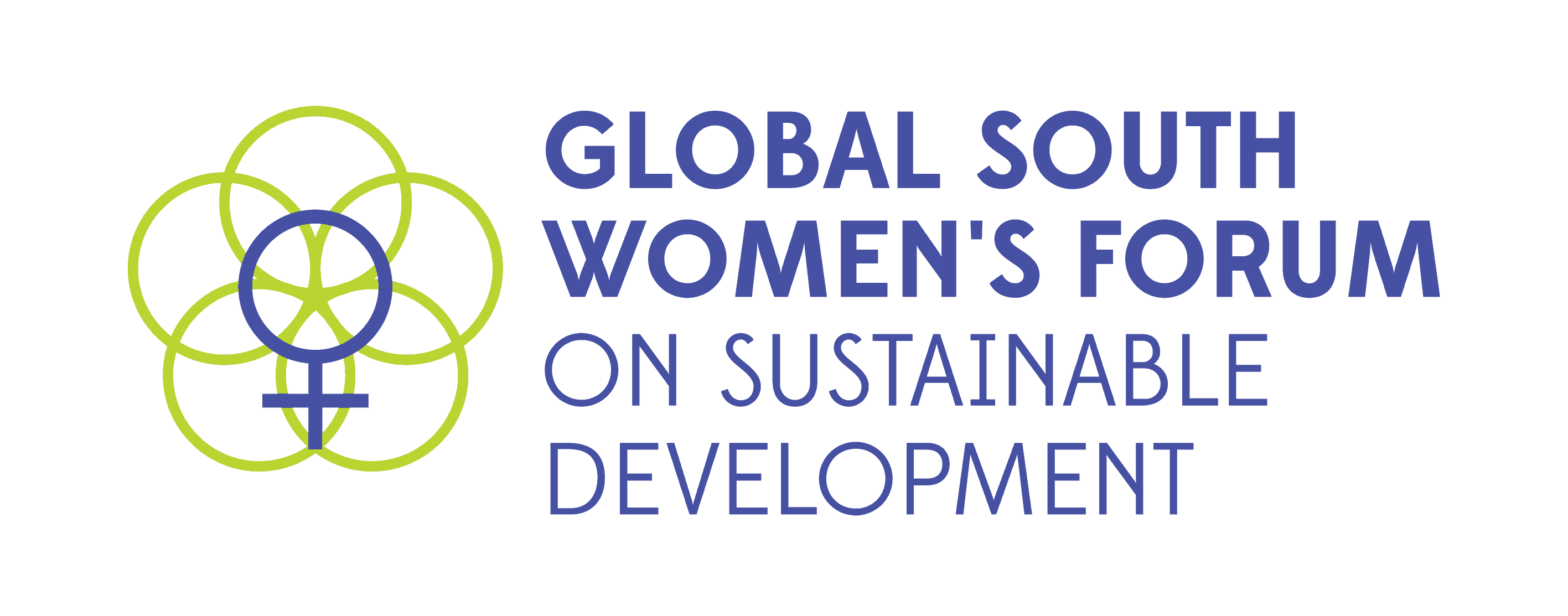Over a century and a half, more than 62 million Europeans migrated from their lands in service of economic and political domination over the same populations who are excluded from present-day Europe and its former settler colonies through the deployment of harsh immigration controls. Many see colonisation as an event in history, but this distorts how it continues to affect people from the Global South via its deeply entrenched systems. Legacies of colonialism and empire forged by the Global North have strategically disadvantaged Global South populations – who have inherited vast amounts of debt and economic subjugation, territorial divisions based on ethno-religious identities, over-farmed land, and colonial frameworks structuring their legal and educational institutions.
People are compelled to follow the flow of capital and the foreign extraction of resources by large multinational corporations, and are also being forced out of their homes due to climate disaster overwhelmingly caused by entities far removed from their locales. This renders them vulnerable to disenfranchisement, separation from their families, and labour exploitation. The Global North then acts as a gatekeeper for access to resources and rights for these populations by deploying rigid border regimes – and the institutions that it passed on to the Global South mimic these mechanisms, perpetuating the same violence within their territories.

Within just a few generations, modern-day border controls and immigration processes have become seemingly immoveable features of our globalised world. Although passports were not without criticism when they came into global use just over a century ago, the idea of a world without them is unimaginable for most people. Both bureaucratic and brutal, an emphasis on documentation permeates travel and migration today. It has become normalised, together with the violence and discrimination based on race, nationality, ethnicity, income, gender, sexual orientation and religion that it engenders. This preoccupation has extended beyond physical, territorial borders to impact non-citizens’ everyday experiences of housing, education, healthcare, employment and much more.
The worldwide disruption caused by the COVID-19 pandemic revealed not only deep-rooted inequities in access to healthcare, wealth, and social, political and cultural rights under a global capitalist system, but also how these are all mediated by border regimes and the institutions that enforce them. Border closures separated transnational couples and families; migrant workers lost their visas due to lockdowns; people awaiting deportation were indefinitely detained and especially vulnerable to COVID-19 in cramped detention centres; and food aid and vaccines were denied to non-citizens. Rather than following the scientific evidence and prioritising equal access for all, so-called public health measures were weaponised against undocumented migrants, who were typecast as vectors of disease, requiring incarceration (which exposed them to a greater risk of infection) and increased state surveillance.
The subsequent return to ‘business as usual’ is a return to in-person engagements without necessary precautions, to discriminatory visa restrictions, and to the removal of virtual/hybrid options that had facilitated the participation of marginalised populations such as people unable to access visas or funds for travel, people with disabilities, and people living with comorbidities in an ongoing pandemic. In holding the Global South Women’s Forum fully online, we aim to avoid the perpetuation of these inequities and to include as many people as we can in our programme, regardless of their citizenship or lack thereof.
